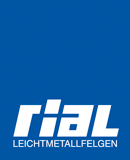
A Straightforward Path Through the Confusing Jungle of Approvals
Getting new wheel rims is fantastic – after all, they can give your car a new, fresh look and even improve its handling characteristics. Naturally, it is important that the wheels fit the vehicle, not just in terms of appearance but also technically. To guarantee this, under German law wheels are subject to approval. To ensure that drivers can hit the road safely even after changing wheels, various technical certifications are available for RIAL wheel rims, depending on the type of wheel. These can be viewed on our website at https://rial.de/gutachten/ (in German only). They indicate which wheel fits which vehicle and whether an administrative procedure – such as approval by a technical inspection association (TÜV) – is necessary.
ECE Operating Permit
The wild card among certifications, so to speak, is the ECE operating permit. With this certification, the ECE (Economic Commission for Europe) confirms that the component has already successfully gone through all the required inspections and approval procedures.
A wheel with an ECE certification is technically equivalent to a wheel from the original equipment manufacturer (OEM); for example the wheel size, offset and center hole are identical.
If an ECE operating permit is available for the vehicle in question, the wheel and the series tires can simply be installed on the vehicle with no need for any additional steps – be they of technical or legal nature. Unlike with a part certificate, no entry in the vehicle documents is necessary either. So with the ECE operating permit you can simply buy a wheel, install it and get back on the road.
General Operating Permit (ABE)
This type of certification contains information about the ABE number under which the wheel is registered with Germany’s Federal Motor Transport Authority (Kraftfahrtbundesamt), the wheel size, offset, bolt circle and number of holes, fastening means, etc. Generally, the ABE is as straightforward as the ECE certification. No modification approval is required, so you can simply drive off following installation. Exceptions may apply in the event of major deviations from the series of the vehicle in question. Anywhere that an A01 is indicated under the requirements in the certification requires change measures and therefore also approval by an officially recognized expert.
No matter which version of the ABE your new wheel rims have, you must have a copy of the certification with you every time you go out for a drive, otherwise a police stop could result in a fine!
Part Certificate (TGA) Section 19 (3)
If a wheel has neither an ECE nor an ABE certification, a part certificate is always available for our wheels. This is usually the case with wheel rims that differ greatly from the OE wheels. Like the ABE, the part certificate in accordance with Section 19 (3) of the German Road Traffic Act (StVZO) contains all the required technical data and instructions to ensure correct installation and that no illegal parts are installed on the car.
For example, the part certificate specifies all the technical data for the wheel as well as possible wheel and tire combinations and, if applicable, necessary changes to the vehicle, which absolutely must be complied with. Unlike the ECE or ABE certification, with a part certificate approval by an expert is mandatory for the vehicle to continue being used in road traffic. This means after installation your first stop should be at a vehicle inspection company such as TÜV or DEKRA.
They will meticulously examine whether the combination of certification, installed part and vehicle type is permitted. The expert will also inspect the quality of the conversion. If there are no complaints, he or she will issue a registration in accordance with Section 19 (3) of the German Road Traffic Act, known as a modification certificate. It is important that you then have the registration office enter the modification in the vehicle documents.


